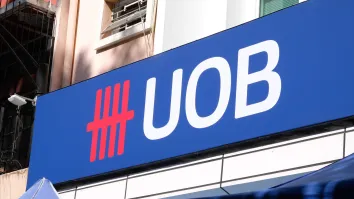Why is willful default a growing threat to Bangladesh’s financial stability?
By Md. Touhidul Alam KhanBangladesh must implement stronger governance measures across its financial institutions.
Bangladesh’s banking sector faces a growing challenge that threatens its financial stability: willful defaulters. These borrowers, despite having the means, deliberately refuse to repay loans, severely exacerbating the country’s already high levels of non-performing loans (NPLs).
By the end of 2023, defaulting loans amounted to Tk. 145,633 crore—9% of total outstanding loans—marking a 20.7% increase from the previous year. This alarming rise signals a need for stronger governance and more rigorous accountability measures to address the escalating problem of willful default.
The issue of willful default
Willful default refers to borrowers intentionally withholding repayment despite having sufficient resources to meet their obligations. Such defaulters often engage in deceptive practices, including underreporting cash flows, diverting borrowed funds, or misusing them for unapproved purposes. These actions directly contravene the principles of a debt contract, where borrowers are expected to repay loans on a set schedule.
This challenge is further complicated by the information asymmetry between banks and borrowers. Lenders often lack sufficient insight into the true financial conditions of borrowers, who may conceal crucial information about cash flow or business performance. This concealment leads to rising non-performing assets (NPAs), creating a significant strain on bank balance sheets and undermining the financial system’s overall health.
In developing countries like Bangladesh, the problem is even more acute due to weak legal enforcement and regulatory oversight. Lax supervision and informal financial systems create an environment where willful defaulters can exploit loopholes, deepening the NPL crisis and putting the country’s financial stability at risk.
Bangladesh Bank’s response: A framework for accountability
In response to the alarming rise in willful defaults, Bangladesh Bank introduced a set of stringent guidelines aimed at holding borrowers accountable. These guidelines are part of a broader effort to reduce the country’s defaulted loan ratio to less than 8% by 2026. The framework imposes hefty penalties on both defaulters and banks that fail to comply with the new rules. Fines can range from Tk. 50.00 lakh to Tk. 1.00 crore, with additional daily penalties for ongoing violations.
Under these new guidelines, banks are required to set up a dedicated "Willful Defaulters Identification Unit" tasked with identifying and investigating cases of willful default. Once a borrower is flagged, they have 14 working days to respond before further actions are taken.
The consequences for willful defaulters are severe: they are barred from holding directorial positions in financial institutions, excluded from receiving national awards, restricted from foreign travel, and prohibited from participating in certain property transactions until their loans are fully repaid.
National Bank Limited’s bold move
Among the first to take action under Bangladesh Bank’s guidelines, National Bank Limited (NBL) recently declared four borrowers as willful defaulters in its 509th Board meeting—an unprecedented move in Bangladesh’s banking history. This decision signals NBL’s strong commitment to enforcing governance and accountability within its operations. It is a clear message to defaulters that they will no longer be shielded from the consequences of their actions.
The NBL Board’s decision underscores the importance of strong leadership in tackling willful default. By setting an example, NBL is paving the way for other banks to follow suit, strengthening the overall integrity of the financial system. This move also marks a turning point in Bangladesh’s approach to addressing willful default, reflecting a shift from leniency to firm enforcement.
The broader context: Weak regulatory systems
The willful default issue is not unique to Bangladesh; many developing countries struggle with similar problems due to weak regulatory environments and incomplete legal frameworks. Compared to developed nations where strong regulatory oversight and judicial systems effectively hold defaulters accountable, countries like Bangladesh lack the necessary infrastructure to curb financial misconduct.
In Bangladesh, the problem is compounded by incomplete debt contracts and a reliance on informal financial systems. The lack of transparency and enforcement mechanisms creates opportunities for defaulters to evade repayment, leading to a buildup of NPAs and eroding public confidence in the banking sector. Additionally, the tight bank-borrower relationships prevalent in the country further exacerbate the issue, as borrowers often rely heavily on a single bank for financing, limiting the bank’s ability to enforce stringent penalties.
Strengthening governance and accountability: The way forward
To address the growing crisis of willful default, Bangladesh must implement stronger governance measures across its financial institutions. Banks need to adopt stricter due diligence practices when assessing loan applications and maintain close monitoring of borrowers' financial activities throughout the loan period. Additionally, the government must bolster the legal and regulatory frameworks that govern the banking sector to ensure that willful defaulters are held accountable.
Greater collaboration between banks, regulators, and judicial bodies is also essential to ensure the effective enforcement of penalties against defaulters. In this regard, the recent moves by Bangladesh Bank and NBL serve as important steps toward establishing a culture of transparency and accountability within the financial sector.
Conclusion
Willful default poses a serious threat to the stability of Bangladesh’s banking sector, with far-reaching consequences for the broader economy. As the problem continues to grow, it is clear that stronger governance and accountability are essential to curbing this damaging trend.
The bold steps taken by Bangladesh Bank and NBL represent a crucial shift toward more effective regulation and enforcement. However, the fight against willful default requires sustained efforts from all stakeholders, including banks, regulators, and policymakers, to protect the financial system and restore public trust.
Ultimately, addressing the issue of willful default is not just about enforcing penalties—it is about creating a financial environment where transparency and accountability are the norm, ensuring that Bangladesh’s banking sector can thrive in the years to come.




















 Advertise
Advertise











